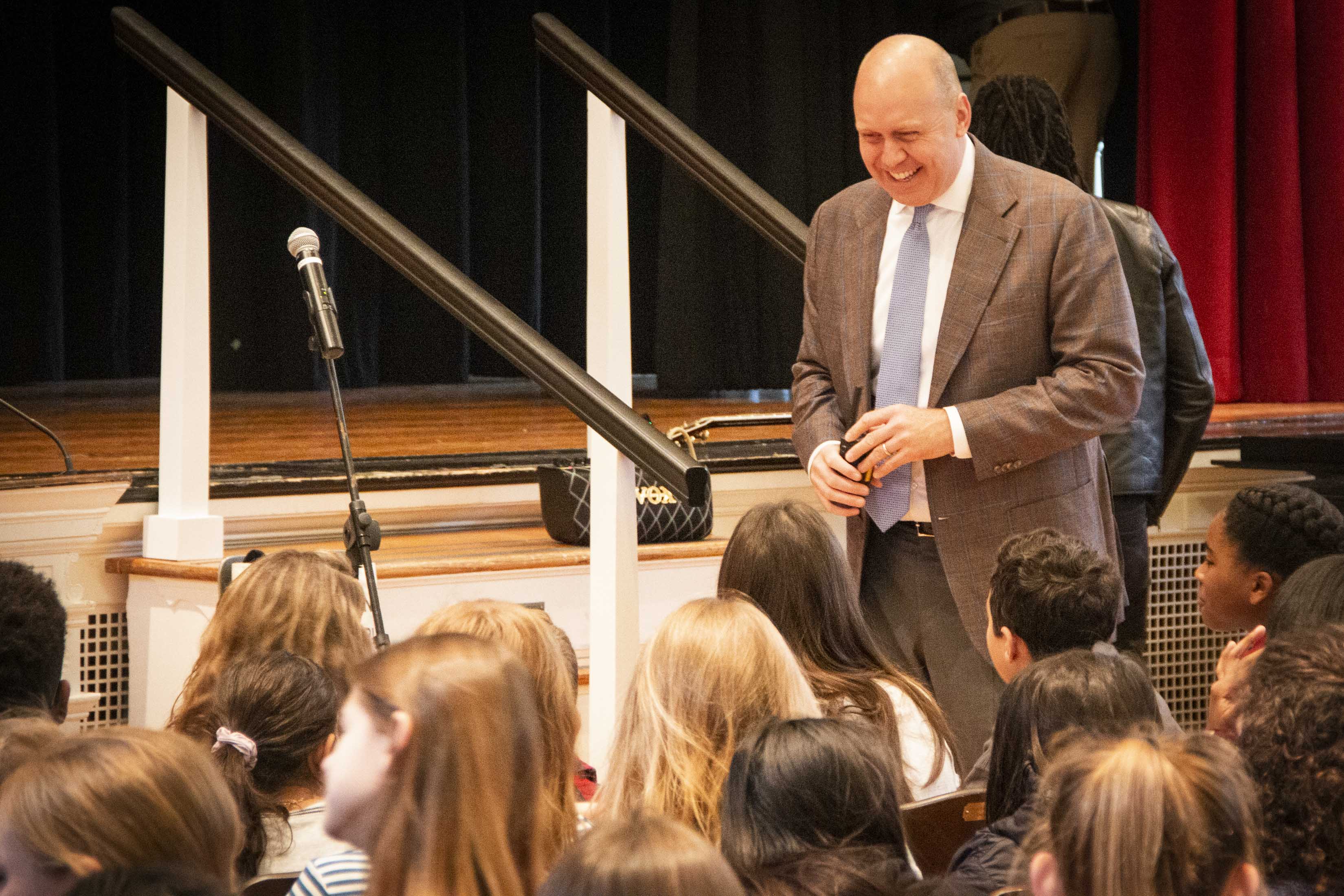This week I attended the annual conference of the Independent Schools Association of the Central States (ISACS) in Louisville, where I had the good fortune to hear remarks by Steve Pemberton, Chief Human Resources Officer at Workhuman and former Chief Diversity Officer at Walgreens and Monster.com. Steve’s book, A Chance in the World, chronicles his childhood as an orphan in Massachusetts, and his presentation paid tribute to the various adults who supported him through his journey. “You never forget the first person who sees you,” he said.
The extraordinary gift of being seen, and the corollary requirement that we be willing to see, put me in mind of comments by Barack Obama two Tuesdays ago that made headlines. “The world is messy,” he said. “There are ambiguities. People who do really good stuff have flaws. People who you are fighting may love their kids, and share certain things with you.” Obama was inveighing against “cancel culture,” in which people are ostracized for offensive words or actions. He was arguing for greater tolerance, for seeing rather than closing our eyes.
Yale professor of English Eric Bromwich, writing in the pages of The New York Review of Books in 2015, warned that “the great social calamity of our time is that people are being replaced by machines.” I wonder sometimes whether this is more a matter of us becoming like machines than machines becoming like us. Only a mechanized way of being in the world can construe of “canceling” a person as one would cancel a reservation or an order online. A fully human way of being in the world makes no sense of “unfriending.” The MIT Technology Review acknowledged in July that the most common method of training computers to interpret human emotions is “deeply flawed,” but if we stop taking the time to see and know each other, will it even matter – or will our emotional range narrow only to feelings that emoji can express? Artificial intelligence won’t need social or emotional nuance or depth if we continue to lose the capacity for them.
In a break-out session that followed his keynote address at the ISACS conference, Steve Pemberton projected a slide with an image of an iceberg. Over its tip were written those characteristics that we tend to see in each other – or presume to see – quickly, such as skin color, body size, gender and social behaviors. But over the iceberg’s submerged bulk were written characteristics that require more from us to “see,” such as religious beliefs, family life, sexual orientation, educational background, geographic background, ethnicity and character. Pemberton challenged us to see below the waterline. “Look harder,” he insisted.
The word “respect” in its purest Latin form means “look again,” but I would like to think this definition is no different than “look harder.” Cancel culture can have no place at MICDS. Turning off is easy. Machines do it all the time. Keeping our eyes open is harder, and seeing — respecting — is harder still. Seeing each other is the work to which we must be committed every day. “You never forget the first person who sees you.” Look harder.
Always reason, always compassion, always courage. I wish you a wonderful weekend with your families and much success as the second trimester unfolds.
Jay Rainey
Head of School
